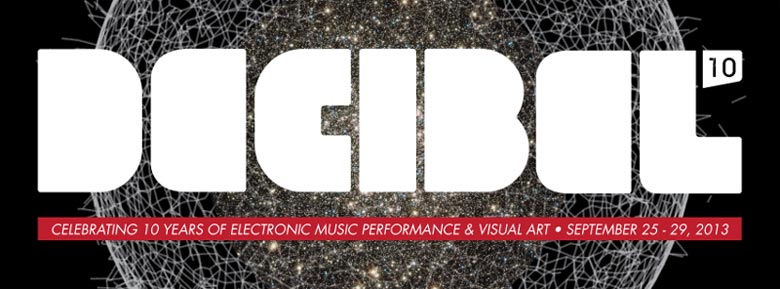Mystics throughout the ages have sought to express the relationship between birth, death, and time through all manner of ritual and philosophy. In Qabballah, we have the Supernal Mother Binah, who crystallizes Force into Form, thus making us subject to time and decay. In the ancient Greek religions, we have the story of Demeter, whose periodic descent into and return from Hades signifies the cycle of birth and death. And in astrological terms, we have the Saturn Return, which signifies the recurring point where the God of Time returns to the position he held on our chart when we were born.
This last concept has worked its way into the modern Western lexicon to the point of cliché, but it serves the purpose of illustrating a point in our lives — which happens around every 27 to 30 years — when we are seemingly forced by some unseen hand into a state of brutal self-reflection. It is the mid-life crisis; the night journey; the start of C.G. Jung‘s path to individuation. Regardless of what we call it, this is an ordeal that most people are at least tangentially familiar with. Some event, possibly innocuous at first, becomes the source of friction that challenges us to engage our assumptions about who we are and what we are doing, so that we might make better use of our time on Earth.
Now in her late 20s, Portland electronic musician Natasha Kmeto has felt the impact of her own Saturn Return and emerged from it all the better. Though not explicitly dedicated to the topic, her latest album, Crisis, is a highly personal record about love, loss, and longing that marks a maturation point in Kmeto’s musical career. It has also lifted her from the status of popular local artist to internationally-renowned R&B singer and electronic music producer.
Kmeto is no stranger to music; she grew up in a musical family where she played in a jazz band with her parents, fronted numerous rock bands, and briefly attended music school in Los Angeles. Her departure from music school was a break from a stifling academic environment designed to hone its student’s talents towards creating packaged commercial fodder and industrialized jingle pop.
“I went [to school] for a year and saw what was happening to my friends with the study of music…” recalls Kmeto. “I was like, ‘I want to be an artist, not necessarily a craftsperson in this.’ No disrespect to people who do it as a craft… for me, I didn’t want it to become a discipline.”
After leaving school, Kmeto set out to reconnect with her creative impulses. She moved to Portland, Oregon, and rediscovered the reasons she pursued music in the first place.
“When I was in school, music got really theoretical, and when I got here, I really got to a place where I could be a fan of music again,” says Kmeto. “I started going to shows and dancing and having fun instead of sitting there and analyzing it.”
“… In that process,” she continues, “[I] just started kind of making music for myself, cuz prior to that I had always been in bands and never really felt like I had control over my writing.”
See Also: Natasha Kmeto Live Show Review
Natasha Kmeto – Crisis
Full Album Stream
Kmeto began to experiment with electronic music and hip-hop, and was surprised by the positive reception to her new work. Within the first six months to a year of her solo career, she landed herself a manger and a booking agent, and the right path seemed to open up wide before her.
“It’s interesting because I feel like when a lot of people first start out, they’re hesitant to release stuff, because they’re afraid they’re going to get pigeon-holed, because your first thing isn’t necessarily always going to be your best work,” Kmeto explains. “But it was by releasing things that I actually got to where I got.”
For Kmeto, choosing to pursue music without more academic training ultimately came down to the idea of socialization within a framework of social expectation — and the importance of breaking free of those expectations to find yourself.
“I think that we’re all definitely socialized to do certain things. ‘This is what you’re supposed to do; this is what’s good’ — and because we’re all socialized that way, when you’re going in that direction, it feels good. And I think I kind of bought into a certain lifestyle without even questioning going into it,” Kmeto recalls. “It was my career that facilitated me traveling more and starting to experience different things in my mind, [so] that I kind of realized that the trajectory I was on was not the one that I wanted to be on. I kind of did a 180 and had to get really honest with myself and figure out what I wanted, because I wasn’t happy.”
“Obviously, getting more honest with yourself makes you a more honest artist, generally,” Kmeto continues. “So it’s affected everything. It’s cyclical, but I feel like my career has affected my life, and my life has affected my career. Just cycles, which is kind of cool.”
Crisis is a heartbreak record, a break-up record — and with those experiences often comes a reassessment of one’s own being. Kmeto’s observation on the cycles in her life seems to again echo the larger Saturn Return cycle that happened to coincide with the creation of the record — and in this case, one of the biggest lessons learned was one of transparency.
“Earlier [in my career], I was a little more veiled in my attempt to express myself — but not on purpose. It wasn’t like I was sitting down and being like, ‘I’m going to make a really veiled record that people may or may not read into clearly.’ I think that I had a lot going on subconsciously that I wasn’t ready to process necessarily…” says Kmeto.
With Crisis, however, Kmeto has learned to talk about life and feelings in a way that is much more instantly relatable. It’s a personal transformation that feels good, and contains a sense of honesty that Kmeto hopes to maintain in her own life in periods to come.
“I don’t think I’m going to go back to being sort of hiding out anymore…” says Kmeto. “I have people reaching out to me and writing me letters about how my album has helped them come to terms with things that they’ve been dealing with. I just think that’s really cool. I know that art has been for me, too…”
Kmeto is a self-described R&B musician, and admits that, in her opinion, the best R&B music is the extremely straight-forward. She is quick to give nods to comparable musicians like James Blake, who are able to sing simple lyrics with the force and impact of more complex ones.
“What I’ve discerned for myself, is that the only thing that makes lyrical stuff cheesy is if you’re not really meaning it; if it’s an act …” says Kmeto. “[If] you’re just writing a simple lyric but you’re singing it like you mean it, it’s just everything. I think it’s the same thing with really poetic lyrics, too — which I love, also — there just needs to be an authenticity behind what you’re saying.:
In its various incarnations, Kmeto’s music career has been a long journey in the making. What she now finds herself creating is a very timely combination of the underground’s reappraisal of mainstream R&B and the late night grooves of deep house jams. It’s a match that isn’t necessarily new in concept, but it feels thoroughly modern and timeless under Kmeto’s control, due to her tasteful usage of contemporary electronic instrumentation and her considerable talent as a singer with the soulful diva steez of old. It’s the kind of alchemical balance that has the ability to please a variety of palates and is backed up with a globally-understood story of growth, which radiates throughout the lyrics and the production of her music.
Ω








